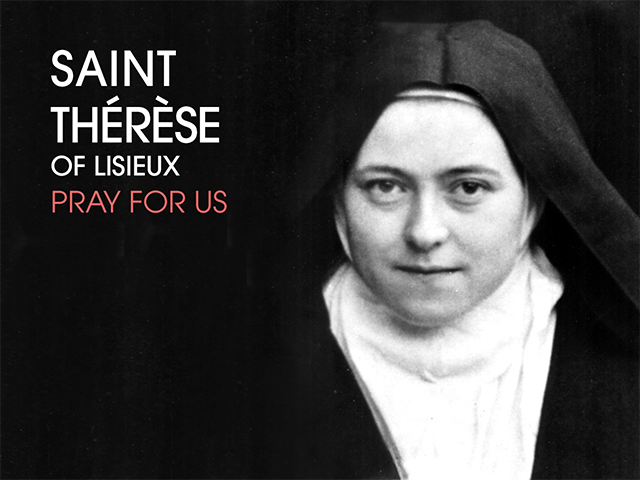



St. Therese of Lisieux (1873-1897) was the last of nine children born to Saints Louis and Zelie Martin in Alencon, France. Her family was devoutly religious, and all five surviving siblings, all daughters, entered the convent. From an early age Therese desired to give herself totally to Jesus. Her happy childhood gave way to trial following the death of her mother when she was four years old. This event changed her personality from merry and bright to withdrawn and sensitive. She also suffered a strange illness that brought her near death. Her sisters prayed for her recovery, and Therese was completely healed after she saw the Virgin Mary statue in her room smile down on her. Just before her 14th birthday, on Christmas Eve, Therese had a mystical experience of the Child Jesus. Her sensitiveness disappeared and her faith was greatly fortified. She attended daily Mass with her father and cultivated her strong desire for the salvation of souls. At the age of 15 she obtained special permission to enter the Carmelite convent in Lisieux where two of her sisters were professed. Recognizing her youth and weakness, and unable to do the great things for God in the world that her heart desired, she determined that she would follow the path of spiritual childhood at the feet of Jesus, as his "Little Flower", and instead focus on small acts of kindness for love of Jesus and interior acts of self-denial, a spirituality called "The Little Way." Therese died of Tuberculosis at the age of 24, and her high degree of holiness was discovered through her autobiography, Story of a Soul. Her "Little Way" became profoundly influential around the world, and although she was not a learned scholar, her deep theological life caused Pope St. John Paul II to declare her a Doctor of the Church. She is the patron against sickness, tuberculosis, and loss of parents, as well as of pilots, air crews, florists, missionaries, and the sick. St. Therese of Lisieux's feast day is October 1st.